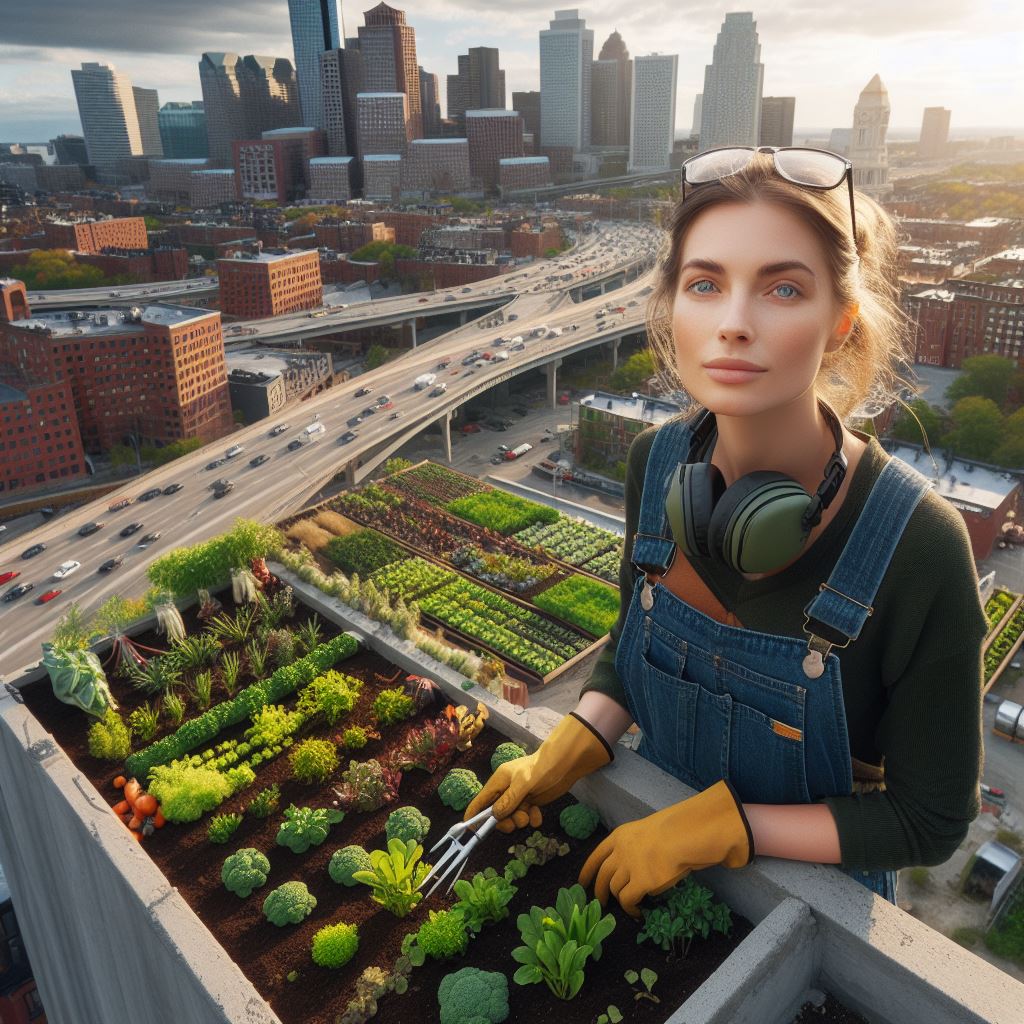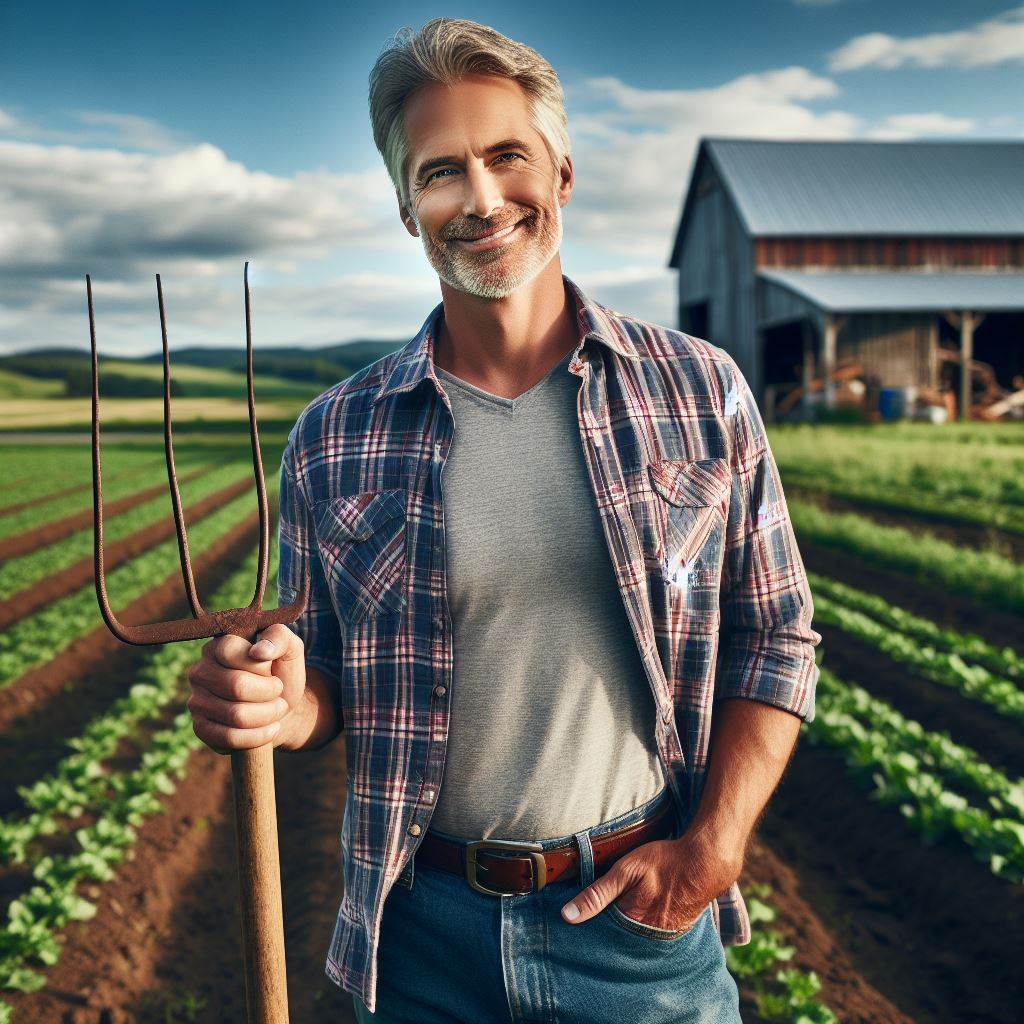Introduction
Seattle Rainy Urban Farms, urban farming, the practice of cultivating food within city limits, has gained momentum in recent years as communities seek sustainable food solutions.
In Seattle, where rain is abundant and the climate is mild, urban farmers face unique challenges and opportunities.
Seattle’s rainy farms stand out in the realm of urban agriculture, offering a fascinating glimpse into how farmers adapt to and thrive in a climate known for its precipitation.
In this section, we’ll delve into the world of urban farming in Seattle, exploring how farmers harness the city’s rain to cultivate vibrant and productive gardens.
Despite the damp conditions, Seattle’s urban farmers have found innovative ways to make the most of the city’s abundant rainfall.
From rainwater harvesting systems to specially designed irrigation methods, these farmers have learned to work with nature rather than against it.
We’ll uncover the techniques and practices that Seattle’s urban farmers employ to mitigate the challenges posed by the city’s rainy climate.
From selecting crops that thrive in wet conditions to implementing strategies for soil drainage and erosion control, these farmers have developed a wealth of knowledge and expertise.
Additionally, we’ll examine the unique crops and produce that flourish in Seattle’s rainy climate.
From leafy greens and root vegetables to berries and mushrooms, Seattle’s urban farmers cultivate a diverse array of crops that thrive in the city’s cool, moist environment.
Through personal anecdotes and insights from local farmers, we’ll gain a deeper understanding of the joys and struggles of urban farming in Seattle.
From the satisfaction of harvesting fresh produce to the challenges of managing pests and diseases in a wet environment, we’ll explore the highs and lows of life on Seattle’s rainy farms.
Overview of Seattle’s Urban Farming Scene
Seattle, known for its lush green landscapes and perpetually drizzly weather, has experienced a remarkable upsurge in the popularity and growth of urban farming.
The city’s commitment to sustainability, access to local and organic produce, and the desire of its residents to reconnect with nature have all contributed to the flourishing urban farming scene.
The challenges of farming in a rainy climate
Farming in a rainy climate like Seattle poses various challenges.
The excess moisture can lead to soil erosion, crop diseases, and hinder proper plant growth.
However, Seattle’s urban farmers are resilient and have found innovative solutions to tackle these obstacles.
They employ techniques like raised bed gardening, greenhouse farming, and water management systems to mitigate the effects of the constant rain.
The uniqueness of Seattle’s urban farming culture
Seattle’s urban farming culture stands out for its distinctiveness, driven by a strong sense of community and collaboration among farmers and residents.
The city’s urban farms go beyond mere food production, fostering direct connections between farmers and consumers through community-supported agriculture (CSA) programs.
These programs allow customers to subscribe to weekly shares of fresh produce, strengthening relationships and deepening connections to the land and food.
Innovation is at the heart of Seattle’s urban farming movement, evident in the popularity of rooftop gardens and the adoption of aquaponics systems.
Rooftop gardens utilize unused spaces to cultivate crops and create peaceful retreats amidst the cityscape, while aquaponics systems integrate hydroponics and aquaculture to efficiently produce both plants and fish, minimizing waste and maximizing resource use.
Education and accessibility are key pillars of Seattle’s urban farming scene, with farms offering workshops, classes, and internships to educate individuals about sustainable farming practices.
Collaborations with local schools provide hands-on learning experiences, emphasizing the importance of food production and encouraging future generations to embrace agriculture.
Seattle’s urban farmers are not only passionate about food production but also about building resilient and inclusive communities.
They actively engage with neighborhoods through farmers’ markets, community events, and volunteering opportunities, fostering a sense of belonging and reconnecting residents with the origins of their food.
As Seattle’s population grows and urbanization accelerates, the role of urban farming becomes increasingly vital.
It ensures food security, reduces the carbon footprint associated with food transportation, and promotes sustainable development.
Seattle’s urban farming movement serves as a beacon of inspiration, demonstrating how cities can harness the power of agriculture to cultivate vibrant, resilient communities amidst urban landscapes.
Read: Cattle Ranchers: 100 Years of Heritage
The Diary of an Urban Farmer in Seattle
Introduce the personal narrative of an urban farmer in Seattle
Seattle is known for its rainy weather, but amidst the gray clouds and wet streets, there is a community of urban farmers who have learned to thrive in this soggy environment.
In this setion, we will dive into the personal narrative of one such farmer and discover the challenges and successes they face in their daily lives.
Transform Your Agribusiness
Unlock your farm's potential with expert advice tailored to your needs. Get actionable steps that drive real results.
Get StartedMeet Sarah, a passionate urban farmer who has dedicated her time and energy to transforming small pockets of the city into lush green oases.
With her trusty diary in hand, she documents her experiences, allowing us a glimpse into her world.
As the diary opens, Sarah shares her excitement over planting her first crop of the season.
She writes about the satisfaction of getting her hands dirty, feeling the soil between her fingers, and witnessing the first sprouts poking through the damp earth.
Share experiences, challenges, and successes of farming in a rainy city
However, as spring turns to summer, Sarah faces her first major challenge: too much rain.
The diary entries reveal her struggle with waterlogged soil and the constant battle against mold and mildew.
Her once-promising crops wither under the weight of the relentless downpour, and Sarah is forced to seek alternative solutions.
Undeterred, Sarah turns to raised beds and vertical gardening techniques, adapting her farming practices to suit the rainy conditions.
She shares her experiments with different types of soil and the satisfaction of witnessing her plants thrive despite the challenging climate.
One particularly inspiring entry tells the story of Sarah’s successful harvest of tomatoes.
Despite the skepticism of fellow farmers who believed tomatoes could never thrive in Seattle’s rainy climate, Sarah persevered.
Using her knowledge of soil drainage and selective planting, she managed to cultivate juicy, ripe tomatoes that were the envy of the neighborhood.
Include anecdotes and insights from the farmer’s diary entries
Through her diary entries, Sarah also reflects on the invaluable lessons she has learned as an urban farmer in Seattle.
She writes about the importance of community, the joy of sharing her knowledge with others, and the sense of accomplishment that comes with nurturing plants from seed to harvest.
But it’s not all smooth sailing.
The diary also chronicles the devastating effects of a particularly harsh winter storm.
Sarah shares her heartache as she surveys the damage, but also her determination to rebuild and start anew.
As the diary comes to a close, Sarah shares her vision for the future.
She dreams of expanding her urban farm, creating a thriving community space where neighbors can connect with nature and learn about sustainable farming practices.
With each entry, her passion for urban farming in a rainy city becomes more evident.
In summary, this section provides a window into the world of an urban farmer in Seattle.
Through the intimate insights from Sarah’s diary, we experience the ups and downs, the challenges and victories, of farming in a city known for its rain.
It’s a testament to the resilience and determination of those who have chosen to cultivate the land, even in the face of adverse weather conditions.
Read: Orchard Heirs: Fruit Farming Through Time

Coping with Rainy Conditions: Tips and Techniques
Dealing with excessive rainfall on farms can be challenging, but with the right strategies and techniques, urban farmers in Seattle can thrive even in rainy weather.
Here are some tips and advice for coping with rainy conditions:
Proper Drainage Systems
- Install a well-designed drainage system to prevent water accumulation and flooding.
- Ensure that ditches, swales, and gutters are properly maintained and free of debris.
- Consider using raised beds or elevated platforms to keep crops above waterlogged soil.
Mulching
- Apply a thick layer of organic mulch around plants to retain moisture and prevent soil erosion.
- Mulching also helps regulate soil temperature and suppresses weed growth.
- Use materials like straw, wood chips, or compost to create an effective mulch barrier.
Greenhouse and High Tunnel Structures
- Invest in greenhouse or high tunnel structures to create a controlled growing environment.
- These structures provide protection from heavy rain and allow for temperature and humidity regulation.
- Ensure proper ventilation to prevent excessive humidity, which can lead to disease outbreaks.
Plant Selection and Timing
- Choose crops that are well-adapted to withstand rainy conditions, such as lettuce, kale, and broccoli.
- Avoid planting water-sensitive crops during the wettest seasons to minimize losses.
- Consult local gardening resources or seek advice from experienced farmers for suitable crop varieties.
Implement Crop Rotation
- Rotate crops regularly to improve soil health and minimize the risk of diseases and pests.
- This practice breaks disease and pest lifecycles while optimizing nutrient utilization.
- Consider incorporating cover crops that can absorb excess moisture and add organic matter to the soil.
Rainwater Harvesting
- Utilize rainwater harvesting techniques to collect and store water for irrigation purposes.
- Install rain barrels or cisterns to capture rainfall from roofs and other surfaces.
- Use collected rainwater during dry spells or when municipal water restrictions are in place.
Integrated Pest Management (IPM)
- Implement IPM strategies to control pests without relying heavily on chemical pesticides.
- Encourage natural predators, practice crop rotation, and use physical barriers to deter pests.
- Regularly monitor crops for signs of infestation and take prompt action if necessary.
Collaborate and Educate
- Engage with other urban farmers and local community organizations to share experiences and knowledge.
- Attend workshops, seminars, or webinars to learn about innovative farming techniques.
- Participate in farmer’s markets or community-supported agriculture programs to connect with consumers.
Rain may present challenges, but it also provides an opportunity for growth and innovation in urban farming.
By implementing these tips and techniques, Seattle’s rainy farms can thrive and produce bountiful harvests all year round.
Read: 5th Gen Corn Farmers: A Century of Growth
Community Engagement and Support
The importance of community involvement in urban farming
- Urban farming thrives on community involvement by bringing people together around the common goal of sustainable agriculture.
- Community engagement fosters a sense of belonging, cooperation, and shared responsibility for the success of urban farms.
- Working collectively, urban farmers and community members can create a more resilient and food-secure urban environment.
Local initiatives, partnerships, and support networks for urban farmers in Seattle
- Seattle has a vibrant network of organizations and initiatives dedicated to supporting urban farmers.
- The Seattle Urban Farm Co-op provides resources, mentorship, and cooperative purchasing opportunities for aspiring and established farmers.
- Partnerships with local restaurants and businesses allow urban farmers to sell produce directly to the community, promoting local food consumption.
Community support can help overcome the challenges of farming in a rainy city
- Rainy weather poses unique challenges for urban farmers, such as excessive moisture and crop diseases.
- Community support can alleviate these challenges through the provision of resources like greenhouses and covered growing spaces.
- Community members can also contribute by participating in work parties or volunteering to help with tasks such as weeding and harvesting.
Importance of Community Involvement
- Sharing knowledge and skills: Community engagement allows experienced farmers to share their expertise with newcomers.
- Building social connections: Urban farming brings people together, fostering social relationships and a sense of community.
- Education and awareness: Community involvement educates individuals about the importance of sustainable food production and environmental stewardship.
- Increasing access to fresh produce: Community-supported agriculture programs enable residents to access locally grown, organic produce.
Local Initiatives, Partnerships, and Support Networks
- Seattle Tilth Alliance provides training, resources, and networking opportunities for urban farmers.
- The Beacon Food Forest is a community-led initiative that transforms an unused urban space into an edible forest garden.
- Seattle’s P-Patch program offers community gardens where neighbors can grow their own food and share knowledge.
- Public-private partnerships between urban farmers and local institutions ensure a steady demand for produce and support sustainable urban agriculture.
Overcoming Challenges Through Community Support
- Community-supported agriculture (CSA) programs provide a stable market for urban farmers and a direct link between growers and consumers.
- Farmers markets and local food cooperatives facilitate the sale of produce while encouraging sustainable and ethical agricultural practices.
- Community-led fundraising campaigns help urban farmers invest in infrastructure to combat the challenges of Seattle’s rainy climate.
- Community involvement in pest and disease management can reduce the impact and spread of agricultural threats.
community engagement and support are vital for the success of urban farming in Seattle.
Through collective efforts and partnerships, urban farmers can overcome the challenges posed by a rainy city, while enhancing food security, fostering sustainability, and building stronger communities.
Read: Soybean Saga: A Family’s Field History
Conclusion
Seattle’s urban farmers face unique challenges but also reap great rewards.
We have explored the diverse range of crops grown in the city and the innovative methods used by these farmers.
It is clear that urban farming in Seattle is not just a hobby but a crucial part of the city’s local food system.
Seattle’s rainy climate may present obstacles, but it has also led to the development of ingenious solutions, such as high tunnels and hydroponic systems.
These farmers have shown resilience and adaptability in their pursuit of sustainable agriculture.
Supporting local urban farmers in Seattle is not only a way to access fresh, organic produce but also a means to promote food security and reduce carbon footprint.
By buying from these farmers, we directly contribute to the local economy and support sustainable practices.
It is essential for readers to explore and visit Seattle’s urban farms, such as Ballard Farmers Market and Pike Place Market, to witness the incredible work being done firsthand.
By engaging with the community and investing in local produce, we show our commitment to a healthier and more sustainable food system.
In closing, Seattle’s rainy farms are not just a side note in the city’s landscape but a vital and integral part of its identity.
Let us celebrate and support these urban farmers who bring us fresh, nutritious food while caring for our environment.
Together, we can continue to grow and nourish Seattle’s urban farming scene.




